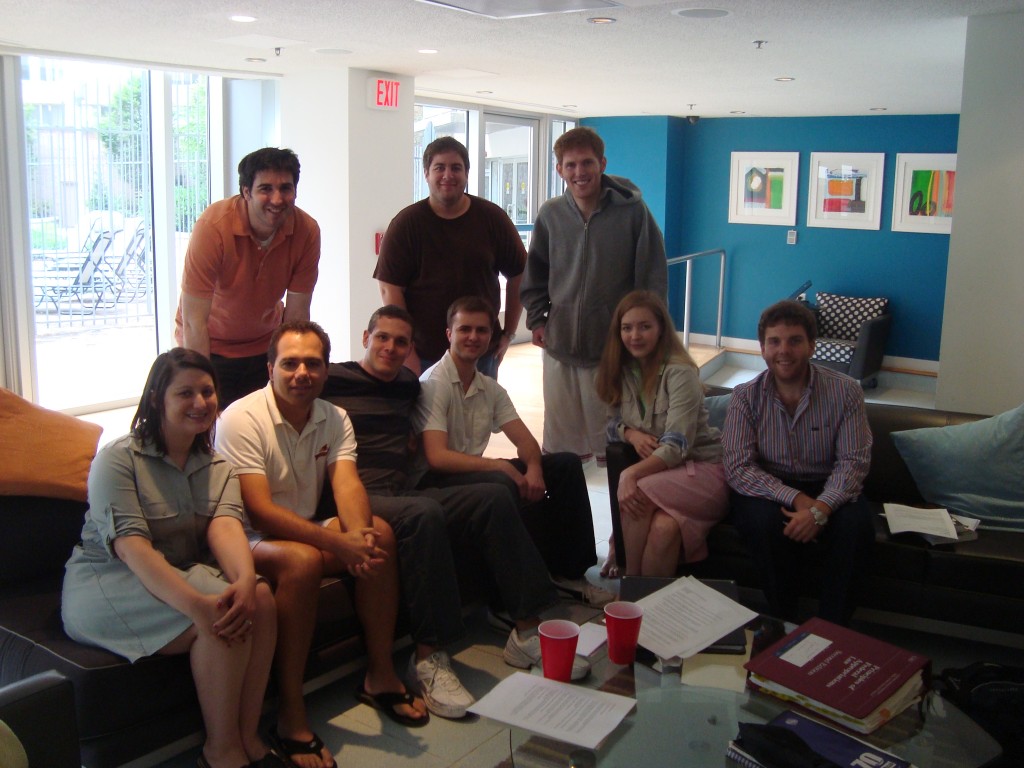I’ve had some serious problems with the work of Ken Klukowski (see here and here). And now, so does Doug Kendall.
In a piece on Townhall, Ken Klukowski makes some serious charges about Elena Kagan’s gun record relying on the fact that she did not file a brief in McDonald v. Chicago to show that Kagan is anti-gun. Doug Kendall properly notes that Klukowski distorted Kagan’s record.
Doug, who filed a brief along with Randy Barnett and other leading academics in favor of reviving the Privileges or Immunities Clause, provided a concise reply to Ken.
As one of two lawyers who met with General Kagan on behalf of the petitioner, Otis McDonald, to request that she file a brief in support of McDonald, I can say first hand that this assertion is nonsense. It is also worth pointing out, as I do below, that Klukowski’s post has important factual distortions in it.
As has been reported in the press, I joined McDonald’s lead counsel, Alan Gura, in a meeting with General Kagan and her staff to ask the Solicitor General to file a brief in support of McDonald and incorporation, against the City of Chicago.
From the outset, it was clear to me that McDonald was a difficult case for the Obama Administration, and that we therefore faced a decidedly uphill battle in seeking support from the United States.
On the incorporation question, there is also the fact that the Solicitor General’s Office has a tradition of not weighing in on incorporation cases at all, regardless of where it may stand on the merits of the case. As former Solicitor General Erwin Griswold explained in a 1970 Supreme Court brief, the outcome of incorporation cases is rarely of direct interest to the federal government, while “fundamental considerations of federalism militate against executive intrusion into the area of State criminal law.” Noting that incorporation cases often arise from questions surrounding state criminal procedure, Griswold indicated that the Solicitor General’s Office was particularly wary of getting involved in a potentially vast number of cases in which criminal defendants sought to expand the procedural protections of the federal Due Process Clause.
General Kagan gave us an entirely fair opportunity to state our case, and the decision by her office to refrain from filing a friend-of-the-court brief in this case tells us nothing meaningful about Kagan’s views on the Second Amendment.
Ken’s only argument to the contrary involves Benton v. Maryland, a 1969 incorporation case. Ken argues that the Solicitor General filed a brief. As Kendall notes, “Klukowski plays fast and loose with the facts.” Ken writes:
If someone asserts that the solicitor general shouldn’t file a brief because it’s a state matter as to whether the Second Amendment is “incorporated” to the states through the Fourteenth Amendment (which is the issue in McDonald) the record speaks to the contrary. The last time the Supreme Court “incorporated” a right from the Bill of Rights to the states, in the 1969 case Benton v. Maryland, the solicitor general filed a brief, and then (just like Heller in 2008) got divided argument time to express the government’s views in front of the Court.
Kendall replies:
Actually, the record is contrary to Klukowski’s version. The Solicitor General did file a brief and did receive argument time in Benton – I tracked down this hard-to-find brief before meeting with General Kagan — but he studiously avoided taking a position on the incorporation issue. Thus, the Benton brief supports, rather than undercuts, the idea that the United States traditionally stays out of incorporation fights.
The fact that Kagan decided not to file a brief in this case says ABSOLUTELY NOTHING about her views on the right to keep and bear arms. Rather, the issue of the United States in an incorporation case is questionable, at best. A Federalist such as Ken should respect the fact that the Federal Government chooses not to wade into state criminal matters, especially when there is no federal law or interest at stake.
Doug also refers to Ken’s “breathless” piece in the Washington Times. Doug concludes noting that “if anyone undermined the constitutional basis for incorporation in McDonald, it’s not Elena Kagan, it is Ken Klukowski himself.”
I reply at great length to the Washington Times article here.
I also found some serious distortions and errors in his Amicus Brief on behalf of the ACRU, see here, which largely relies on an article Ken wrote.
This questionable work from Ken is not surprising, and continues a trend.
I’ll pass on his “bestselling book,” titled The Blueprint: Obama’s Plan to Subvert the Constitution and Build an Imperial Presidency , which currently ranks as #2 on Amazon’s best seller list for Conspiracy Theories books.
